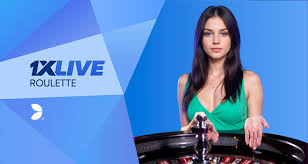
sports betting 1xbet pakistan Sports betting is both a pastime and a serious endeavor for many. Whether you are a casual bettor looking to add excitement to a game or a serious punter seeking consistent returns, understanding fundamentals like value, bankroll, odds and markets is essential. This article breaks down the core concepts and practical approaches that separate recreational gamblers from disciplined bettors who aim for long-term, sustainable performance.
Start with a clear objective. Are you betting primarily for entertainment, or do you want to develop an edge and generate profit over time? Your motive determines the level of study and discipline required. Entertainment betting can be looser in approach, while pursuing profit requires rigorous analysis, record-keeping and emotional control. Be honest about your goals before placing stakes.
Bankroll management is the foundation of longevity in sports wagering. Never stake money you cannot afford to lose. Many experienced bettors recommend staking a fixed percentage of the bankroll per wager — commonly 1–3%. A smaller percentage reduces the risk of ruin and smooths variance, though it slows capital growth. Use unit sizing to keep stakes proportional and avoid chasing losses with irrationally large bets.
Understanding odds is simple in concept but crucial in practice. Odds reflect implied probability and potential return. Decimal, fractional and American formats are interchangeable; convert them to implied probability to evaluate fairness. If your assessed probability of an outcome is greater than the book’s implied probability, you may have found value. Value betting — not just picking winners — is the principle that drives profitable strategies.
Markets vary widely: match winner, handicaps, totals, props, futures, and live/in-play bets. Each market requires specific knowledge. For example, totals bets hinge on pace and scoring trends, while Asian handicaps often offer better pricing efficiency in soccer. Props and futures can provide opportunities where bookmakers’ expertise is limited, but they also carry distinct variance and liquidity considerations.
Line shopping matters. Different sportsbooks price markets differently due to customer mix, liability and regional biases. Opening accounts with multiple reputable operators and using odds comparison tools allows you to secure the best available price for each bet. Even small differences in odds compound significantly over many wagers, affecting long-term profitability.
Research and data analysis are now integral to modern sports betting. Start with reliable injury reports, lineup confirmations, weather and historical matchup context. For advanced bettors, models such as Poisson distributions, Elo ratings, regression models or machine learning algorithms can quantify edge. The goal is to convert qualitative insights into quantitative probabilities you trust more than the market price.
Value detection is both art and science. Look for inefficiencies caused by public sentiment, recency bias or limited sportsbook attention. Popular teams and star players often attract hubris-driven bets, inflating odds beyond their fair value. Contrarian strategies can work, but they require confidence in your model and the discipline to act when the majority disagrees.

Live betting provides dynamic opportunities to exploit in-game information before the market fully adjusts. Quick reactions to momentum shifts, substitutions, or tactical changes can offer short-term edges. However, in-play markets are fast and emotionally charged; use strict rules and smaller stakes to limit errors and execution risk.
Record-keeping separates professionals from hobbyists. Log every bet: date, sportsbook, market, odds, stake, expected edge, and result. Analyze outcomes by market type, sport, and time frame to identify strengths, weaknesses, and systemic biases in your approach. Over time, the data will reveal whether your strategy produces a positive return on investment (ROI) or requires recalibration.
Managing psychology is as important as managing bankroll. Avoid tilt, confirmation bias, and chasing losses. Establish pre-defined staking plans and target metrics for review intervals (weekly, monthly, quarterly). Take breaks during losing streaks, and don’t let short-term variance dictate long-term strategy changes. Emotional discipline ensures consistent decision-making under pressure.
Understand legal and tax implications in your jurisdiction. Betting regulations, licensing and taxation differ widely across countries and states. Use licensed operators to ensure fair markets and consumer protections. Keep detailed records for tax reporting where required and consult a professional for guidance on compliance and record submission.
Security and responsible gambling practices are essential. Use strong passwords, enable two-factor authentication and protect your accounts. Set deposit, loss and wagering limits with your sportsbook to maintain control. If gambling interferes with daily life, finances or relationships, seek help from responsible gambling organizations and consider self-exclusion tools.
Diversify your approach. Relying on a single sport, market or model increases vulnerability to structural changes and variance. Spread bets across different sports and market types that you understand well. If you use predictive models, regularly recalibrate them with fresh data and monitor performance metrics like hit rate, ROI and Kelly fraction recommendations.
Education is ongoing. Follow respected analysts, participate in forums, and study market-moving factors like roster changes, coaching strategies and rule tweaks. Continuous learning improves intuition and model inputs. Networking with other disciplined bettors can provide useful perspectives, but always validate ideas with your own analysis.
In conclusion, successful sports betting blends discipline, analytics, bankroll control and psychological resilience. Treat betting as a long-term project rather than a quick path to riches. Focus on value, limit stakes relative to your bankroll, keep meticulous records, and prioritize responsible gambling. Over time, steady small edges compound into meaningful returns for those who remain patient and methodical.
